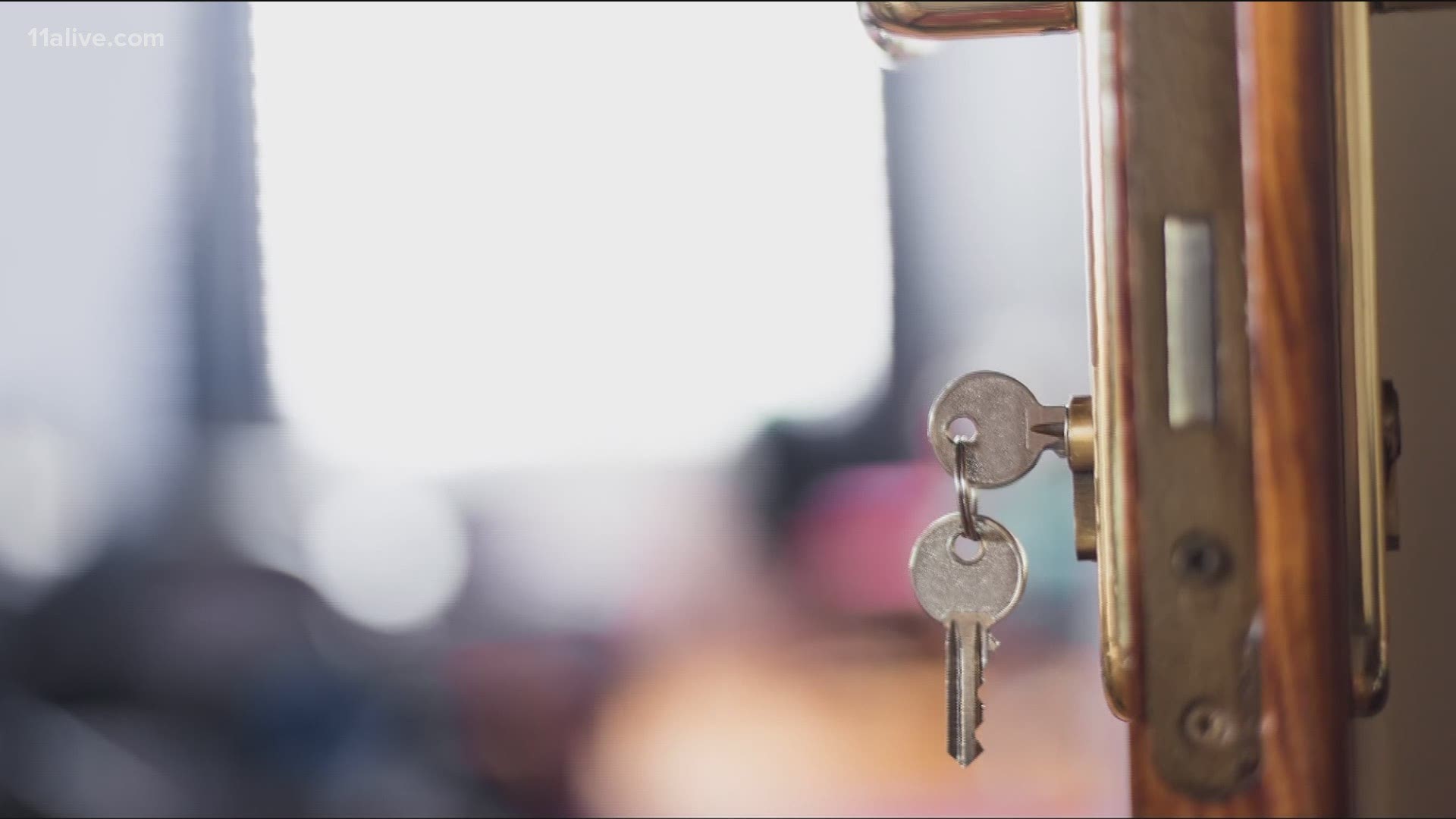ATLANTA — Many people who have been out of work since the pandemic could soon face another challenge -- being evicted from their homes.
The CARES Act Eviction Protection ended in July and there was a 30 day buffer. However, that ended last week.
"Our phones have been ringing off the hooks over the last several months," said John Gainey, an attorney with Atlanta Legal Aid Society.
Gainey said the calls for help are not slowing down.
"September is going to be the worst month yet in this pandemic for evictions because the unemployment expanded benefits are ending and this moratorium is coming to a close,” said Gainey.
When an eviction notice is posted on the door, Gainey said the clock starts ticking.
“You only have seven days to respond and if you don’t respond within that seventh day, on the eighth day the landlord technically has the authority to remove that person from their home,” said Gainey.
Responding on time is crucial. To help with the process, Gainey suggested calling a legal aid attorney right away.
“Are there possible defenses to the eviction? That can include defense because they violated the CARES Act, or a technicality defense because they violated some other normal procedure of requirement,” said Gainey.
Gainey said all evictions have long-term consequences, which could keep people from finding another home.
“If they see an eviction was filed against you and a large money judgment say, three or four months rent is owed, then they’re going to be unlikely to rent to you,” said Gainey.
And evictions can also impact others in the family, particularly children.
"An eviction can cause children to switch school districts in the middle of the school year, if it’s happening multiple times a year, they’re not going to be getting consistent instruction,” said Gainey.
“For people to be put out of their homes at this time especially seems inhumane and really dangerous,” said Gainey.
Gainey said the Atlanta Legal Aid Society has resources for free civil legal help in the five metro Atlanta counties: Fulton, Clayton, Gwinnet, DeKalb, and Cobb. You can find their contact information on their website.
For the rest of Georgia, contact Georgia Legal Services Program.

